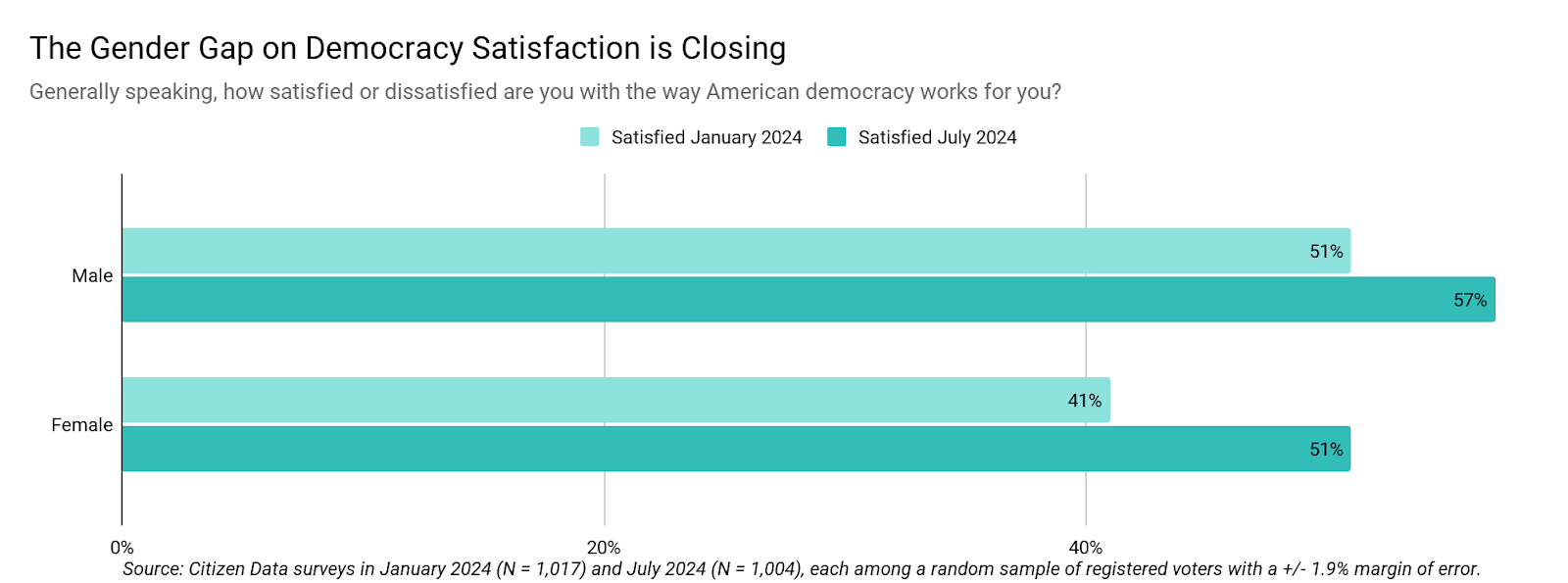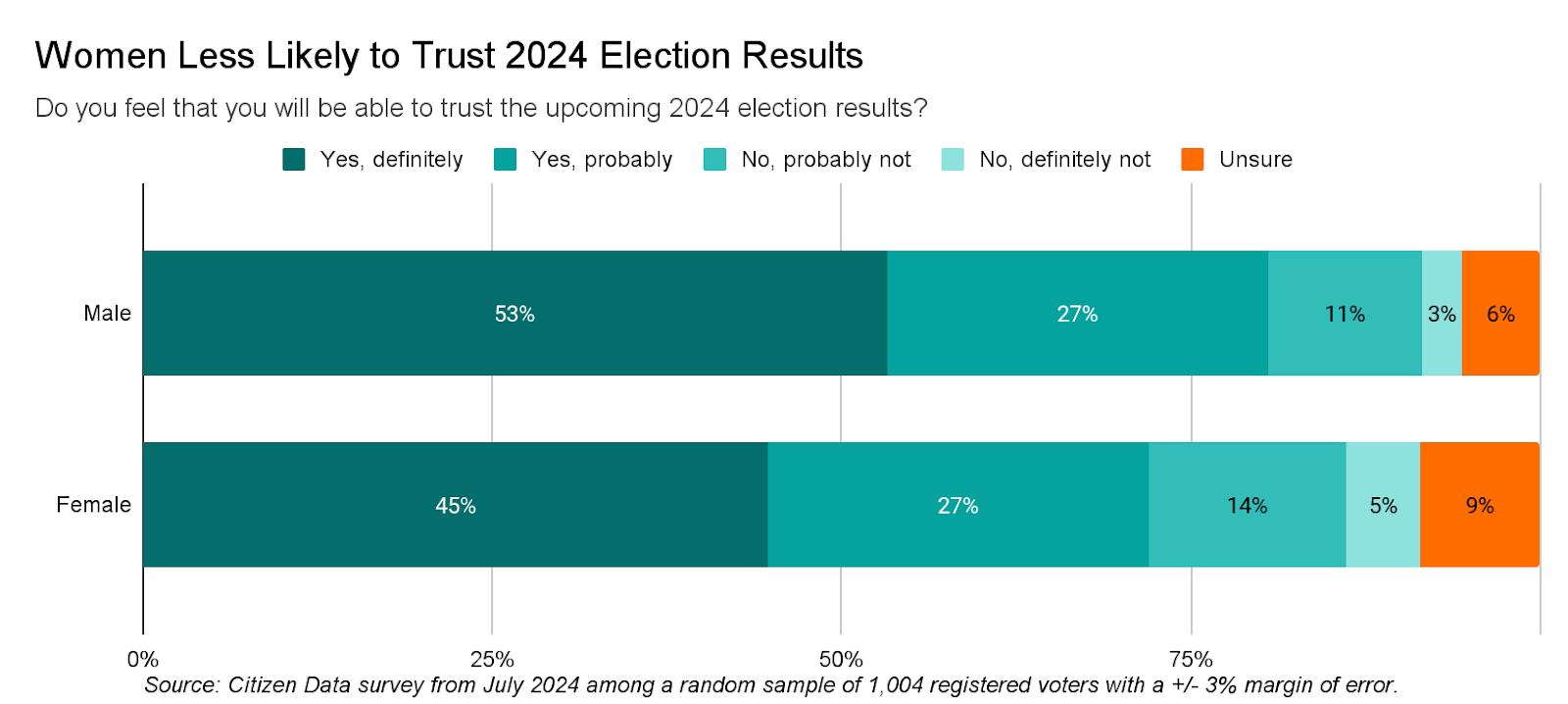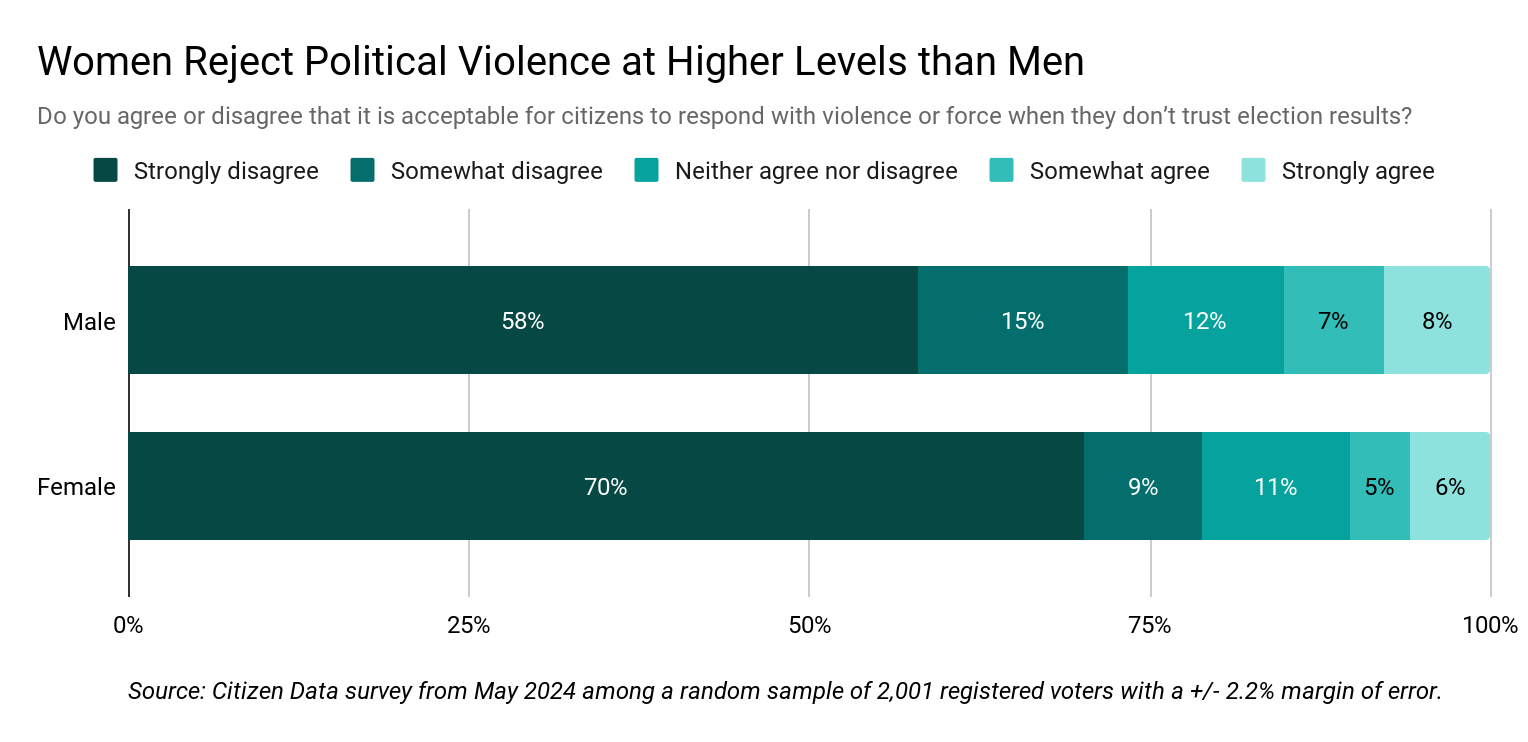How Do Women Feel About Democracy in 2024? August 14, 2024
While women are less satisfied with how democracy works for them and less trusting the outcome of the 2024 elections, they are significantly more likely to reject all forms of political violence.

Written by: Cindy Mays and Grayson Wormser
Back in April, Citizen wrote about American perceptions of democracy, including satisfaction, concerns and threats. With abortion on the ballot in many states and Vice President Harris running to be the first female president, we wanted to better understand how women feel about the current state of democracy.
Interested in receiving insights like this in your inbox? Sign up for our latest data and insights here.
Women are Less Satisfied with How Democracy Works for Them, But the Gap is Closing
When we asked Americans how satisfied they are with how democracy works for them, just over half (51%) of women say they are “somewhat” or “very” satisfied, compared to 57% of men. Further, males are slightly more likely (15%) to claim they are “very satisfied” with the way democracy works for them compared to only 12% of females. It’s clear that despite gains in gender representation and equality, democracy is simply not working as well for women. This is likely influenced by a combination of historical factors such as the marginalization and exclusion of women in politics, and a number of recent policies, including state abortion bans and attacks on oral contraceptives that unequally target women.

However, recent trends point to reasons for optimism. First, general levels of satisfaction with democracy have increased in the last six months across genders. Moreover, gender gaps in satisfaction have decreased by 4% from January to July 2024. This is a sign that democracy may be becoming more responsive to Americans, and is doing so in a way that is inclusive to women.
Women are Less Likely to Trust the 2024 Election Results
Perhaps not surprisingly—given women’s greater levels of dissatisfaction with our democracy—, women are also less likely to trust in the 2024 election results (72% compared to 80% of men).

This reflects a broader issue of distrust: our data found that women are less likely to trust in public safety institutions, news and media institutions, government agencies, and national security personnel and veterans. Although this might not be surprising given how women have historically been excluded from, and unequally affected by, political and societal policies and practices, it is an important reminder these differences exist.
Women are More Likely to Reject Political Violence
In spite of lower levels of democracy satisfaction and trust in our elections, women are significantly more likely to reject political violence in response to mistrust around election results. In fact, 70% of women say they strongly disagree with political violence, compared to just 58% of men. This finding echoes other research including studies that show women are less likely to commit violent crimes, less supportive of military interventions in international conflict, and that women’s political participation increases the frequency and longevity of international peace agreements.

Despite conventional wisdom, although women are more likely to reject violence, they remain more reluctant than men to help reduce political division. While 50% of women say they’re willing, almost two thirds (63%) of men are. This disparity is echoed in those who say “definitely, yes” (21% of men, compared to just 15% of women).
This highlights an important indicator as partners look to increase women’s equality and representation: when women feel as though democracy is not working for them – it becomes much more difficult for them to trust in it, and creates barriers to engagement and participation.
Data in Action:
While a lot of these findings are intuitive due to the lack of representation and barriers to access that women have historically faced, providing this data allows us to spotlight gender disparities and track them over time.
With the combination of research being conducted to better understand the specific barriers that women face and the focus on gender in the presidential election race, it is our hope that future follow-up research will be able to demonstrate the way in which the following gender gaps have decreased.
If you would like to learn more, or are interested in partnering with us on a custom research project, please reach out.
Share this report
How Climate Change Impacts Americans Financial Decisions
As climate change remains a critical global issue with far-reaching implications for our planet’s future, we wanted to better understand how Americans perceive the economic consequences of climate change.